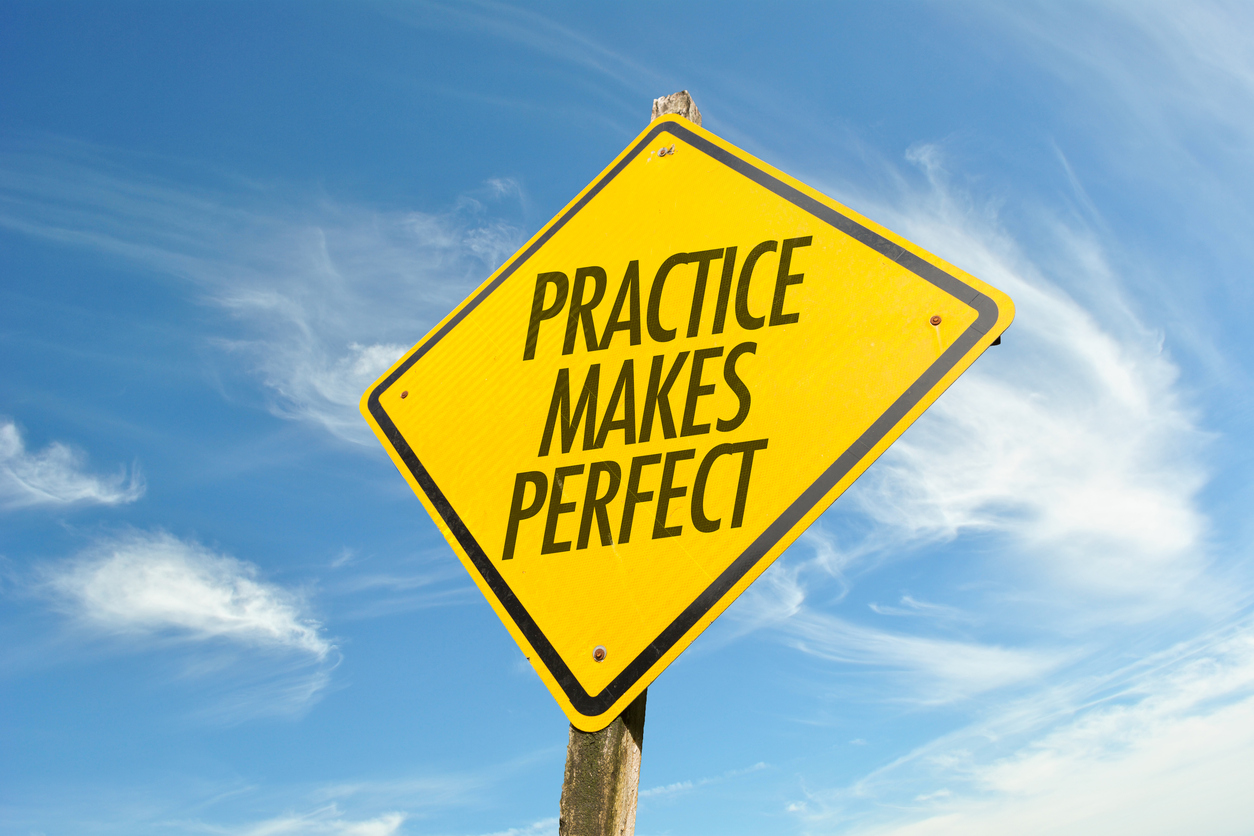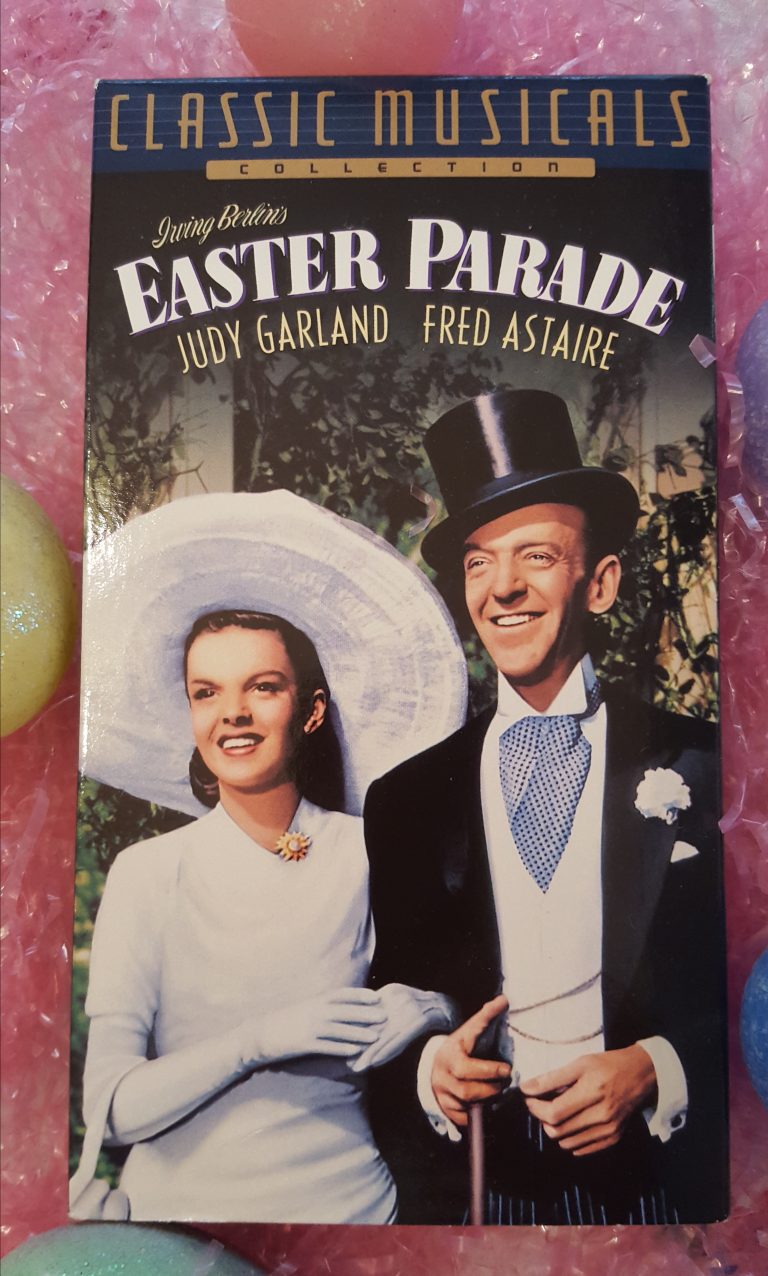Practice Makes Perfect—or Does It?
Every singer has heard the phrase “practice makes perfect” at some point in their studies. Haven’t you? And yet, what does that really mean? Whether you’re working on your singing, or learning how to make the perfect soufflé, if you just do it over and over, you’ll get better, right? Well, not so fast. Let’s take a look at what makes for correct and successful singing practice.
First of all, WHY do we practice? I mean, shouldn’t you just get up in the morning singing like a bird, and shouldn’t it just “happen”? Loud nasty buzzer sound! Wrong answer. See my post about: Can You Really TEACH Someone to Sing, or Do They Have To Be “BORN WITH IT?” We practice to learn proper, healthy vocal technique, to continually develop our voices, and to maintain them throughout our lifetime. Singing is a life-long pursuit, and we all need to continue practicing. The day you say “I’m great now” and stop working at it, that’s the day you start to lose your “chops”! (strength, ability and ease of use of your instrument).
Second, you are not just a musical artist— you are an athlete. Singing requires strength, stamina, breath control, and a host of neuromuscular responses in the body. If you were an Olympic marathon runner or a pro tennis player, you wouldn’t think twice about the daily conditioning you would need to do to keep your body in shape, and the actual practice of the sport itself. Singers need that same consistency of activity.
Third, you’re not only getting better, you’re getting older! “What?!” You exclaim. Yup, while you’re getting invaluable performing experience and developing musical maturity with each year that goes by, you and your body are also aging. The heightened ability you gain to beautifully express a song is fantastic, but you’re always going to be fighting Old Man Time. What does that mean with regard to your singing practice?
Well, I heard a great metaphor for this years ago. Divide your life span into thirds, and let’s say you’re lucky enough to sing through all of it. Singing is like walking up an escalator. In the first third when you’re young, you can actually run up and ahead of the speed of the escalator. In the second third, you’re running just as fast, but you are just keeping up with the escalator. In the last third, you’re not running as fast, and you’re falling behind the speed of the escalator!
Your Secret Weapon
Now, lest this depresses you, remember that you have a secret weapon to fight all this— practicing! The more frequently you practice, and the better your vocal technique, the longer your singing career will be. Look at the fabulous Tony Bennett— he’s 92 years old and still singing! Sure, he takes a few more breaths and has a little more age on the voice, but he’s still wonderful.
For further proof of the effectiveness of practicing and singing regularly, a study was done years ago, comparing the lung capacity of 35-year old non-singers to 70-year old professional opera singers. The “youngsters” were using only a small percentage of their lungs, while the septuagenarians had almost 100% lung function!
So, how do we practice to get the best results in the present, while fighting the effects of aging in the future? Let’s get back to our opening question: Does practice make perfect? Yes, but with some qualifications…
Perfect Daily Practice Makes Perfect
This motto above is my take on the old phrase. Notice that I added two qualifiers, “Perfect” and Daily”. What do I mean by adding those two very important words?
- Perfect. Does this mean you never make a mistake, or don’t stop practicing until you can do something 100% to perfection? No. But it does mean to practice carefully, with great attention to detail. In other words, it’s HOW you practice that counts. Use a mirror so you can see what you’re doing with your mouth, tongue, facial muscles and body. Use your fingers as a bite block to release jaw tension. See my posts: Sing Your “Cake” and Eat It, Too! (Part One) and Sing Your “Cake” and Eat it, Too! (Part Two). Record your practices and listen back to get aural feedback and make immediate corrections. There’s an old saying: “God is in the details”. That means that greatness is in the details. Don’t rush, skimp or be sloppy about your singing practice.
- Daily. Does that mean you have to have to practice every single day? No, not necessarily. I usually tell people to try for 5 days out of seven. After all, the voice and body benefit from rest as well as exercise. But, singing is an aerobic activity. When you stop doing your aerobics class, your thighs get flabby. If you lay off of practicing your singing for too long, your voice gets flabby, too!
Other Important tips!
Have a schedule
You must make a commitment to stick to a regular practice schedule. See my post: How to Find Time to Practice Singing— Even When You Don’t Have Time!
Also, remember that the length of your practices will change as you become more advanced and have more repertoire to work on. And in the beginning of your studies, frequency is even more important than duration. As your body is learning new habits, practicing frequently will help your muscle memory “stick” much faster.
Have a plan
Don’t just practice willy-nilly! Have a plan as to how you will warm-up,
and what specifically you want to work on in your songs. Check out my
post: Practice Singing Smarter, for Faster Results! for an example of a good practice plan.
Avoid perfectionism
In as much as we want to pay attention to details and practice carefully,
beware of perfectionism. If you keep grinding on something until you’re
vocally tired or completely frustrated, that is not going to be productive.
Don’t compare yourself to others, especially very advanced singers on
recordings. Also, when you listen to yourself on a recording, listen only
for specific technical elements, rather than judging yourself as good or
bad.
Don’t build your technique on other singer’s bad habits!
This is a HUGE point. I can’t tell you how many times I ask a student to fix a certain element of their vocal technique, and they counter with: “I watched/listened to (fill in the blank) and he/she doesn’t do that! And he/she still sings great!”. My usual first and flippant response: “When you sing as well as so and so, then you can do that, too!”. What I mean is, that singer has other strengths that may offset the one (or more) things they are doing wrong. But why would you want to do something the wrong way to start with? Why not learn the highest and best in all aspects of your technique?
So, practice does make perfect, or at least darn near close most of the time, IF you do it with clear intention, a plan and regularity. The above tips should set you on the road to greater singing success, as soon as your next singing practice— today!







